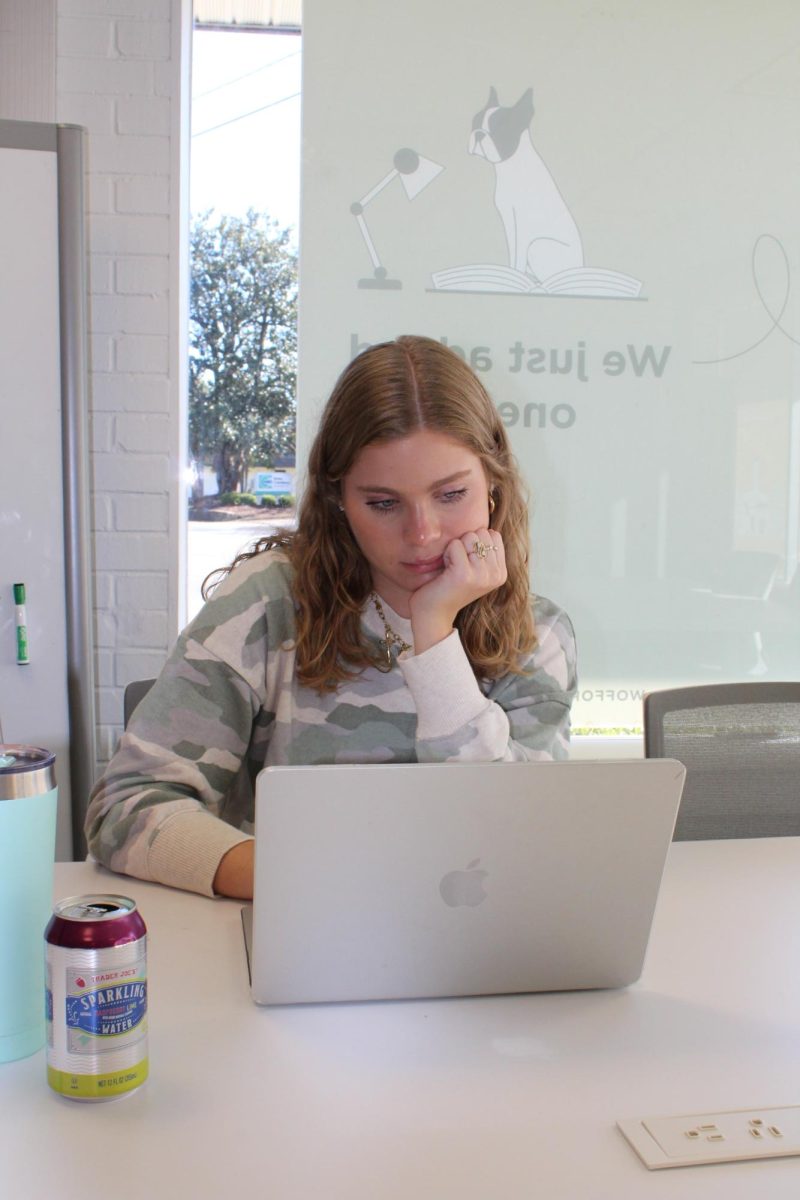Politically opposing students promote bipartisanship through podcast
“It has been a learn as we go process,” said Coleman Bryant ‘21, in reference to the podcast—Carolina Roll Call (CRC)—that he co-founded with Jacorie McCall ‘22.
Before the CRC was born, Bryant and McCall spoke on the phone every day about politics and found commonalities in their backgrounds as rural South Carolinians related to public educators. Coming from the same Pee Dee area of South Carolina, Bryant and McCall understood both the struggles and solutions that stemmed from local and state politics.
“I got involved in politics in 2017 when I spoke up against the county council to take funding away from local schools in Dillon, and it resulted in a lawsuit versus the country, versus the school. So that’s where I got involved in politics,” McCall said. “I saw the difference that it made in lives. You had $319,000 that we were fighting for, in some counties that’s nothing, but in Dillion county… that was everything,” he said.
The goal of the podcast was to highlight the duo’s similarities and differences while also placing spotlight on state politics with the goal of encouraging and exemplifying bipartisanship. It was important for each of them to acknowledge that progress came through working together.
“We wanted to say, ‘if we can get along, and we can have conversations, and we can be civilized then maybe it can spark something in our general conversation across our state, across our country, our schools and our community,” said McCall, and “that just because we vote differently doesn’t necessarily mean that we can’t be friends.”
“We disagree politically,” McCall said, “but we understand and are able to rationalize where the other’s privilege may come from. Coleman being a white male, he sees life differently than I do. Me being an African American, I see life differently than he does, but then there’s another layer, I’m an African American conservative, there are certain aspects of racism that some white liberals may not even notice because it is the norm of the society. So it is understanding in the criticism that there’s always things that we’re constantly learning.”
Bryant and McCall can often be found cracking open a South Carolina brewed beer while interviewing politicians on their podcast in an attempt to, as Bryant said, “make it interesting and light hearted.”
Humanizing state and local politicians is another goal of the CRC team. McCall added that the duo “wanted to show them being real, sitting in their house drinking.” To them, in order to grab college students’ attention and get them interested in politics, “you have to meet them where they are: drinking.”
To further humanize figures that the public often only sees on TV or on billboards, Bryant and McCall always ask each guest two questions. “The first one is,” Bryant said, “‘what do you do outside of politics?’” The second is “‘what’s the best kept secret of South Carolina?’”
Guests on the podcast have included South Carolina Lieutenant Governor Pamela Evette, Rev. Jesse Jackson, South Carolina Senator Sandy Senn and Representative Nancy Mace. While politics are typically the focus of the discussion, Bryant and McCall often find themselves most inspired by each politician’s personal stories.
Former state representative Mandy Powers Norrell, for example, revealed that she attended the same public school as her children and worked in a mill in Lancaster, SC to pay for college. Representative Mace, in comparison, was the first Republican woman to become a member of congress from SC, but also dropped out of high school and worked at Waffle House to pay for college. Bryant described them as “people who are really real with you.”
McCall claimed, “I didn’t have a favorite person, but I had a favorite moment.”
“One of the biggest moments for me,” he revealed, “was when we were praying with a Civil Rights leader that we learn about in history that was standing right beside Dr. King when he died… and that was Reverend Jesse Jackson.”
With these local politicians, CRC dives into issues that affect South Carolinians, young and old, present and future. Offshore drilling, Bryant and McCall claimed, has come up in every single one of their interviews and remains at the forefront of the South Carolina political debate. Other issues, such as racism, social justice, gender issues and sexual assault also appear in the podcast episodes as the two attempt to relate policy to college students and to engage younger listeners.
Senator Sandy Senn, the first guest of CRC whom McCall recalled, said “you can’t paint every politician… by the same brush. We have different families, different beliefs and we see the party in different ways.”
“So that is what we wanted to create,” McCall said, “the idea that the politician wasn’t just this hypocrite or this person that you argue with… but they are people.”
Carolina Roll Call is available for streaming on Apple Podcasts and Spotify.
























